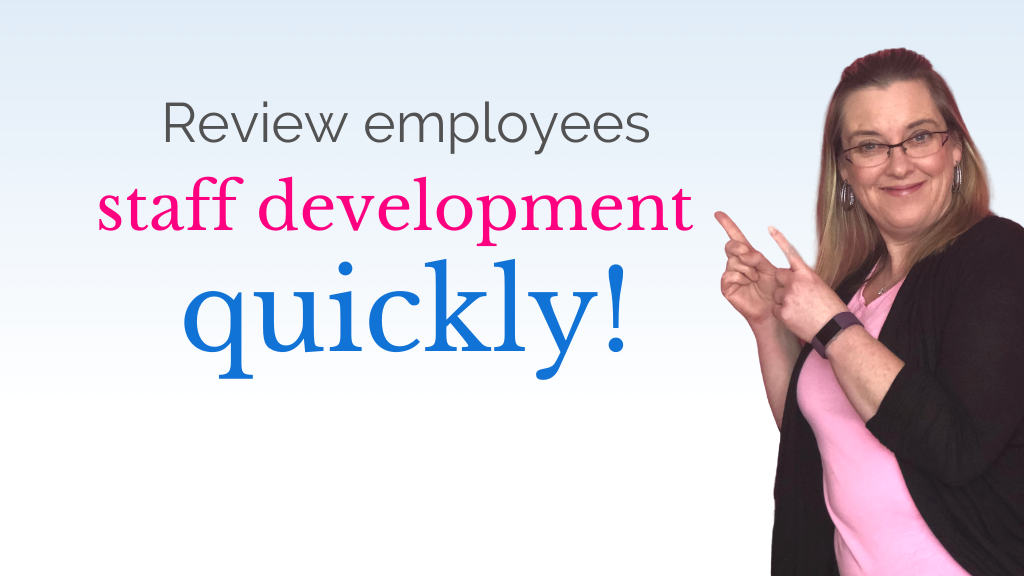|
Are there times this week when you’ve been angry? Feeling hopeless? Afraid Are you managing all of that with composure? Kara wasn’t! When Kara called yesterday, she was vibrating with anger. As she discharged her furry, I knew her heart was racing, and her blood was hammering through her veins. For several minutes at the beginning of our coaching call, Kara spewed forth a myriad of legit complaints, frustrations and indignations. She had every right to be angry. As I heard the story, I could feel my fury building too! Stress has been rising for everyone. The pressure is building around us and closing in.
You are in the middle of it. It's nuts. Crazy. Saying it is stressful doesn't even cut it. In many cases, it's about life and death. It's about yours and the people around you, livelihood. So, it makes sense that you would be soooooooo angry at times; you are about to explode! But you can't blow. Well, you can, but first, it's not going to be pretty. Second, it's not what those around you need. They need you to be composed. Another leader I talked to yesterday couldn't stop crying. She was devastated. She feels helpless. Each of us can only do so much. Those that care for the vulnerable sector have to keep going. In other programs, it is clear it is time to cease operations. So clients have no service and employees have no work. The leader, perhaps that's you, feels helpless, hopeless, and crushed. But your team doesn't need you weeping uncontrollably. Your team needs you to be composed. And then there is fear. We all feel it. It hangs in every conversation. Fear screams from the grocery stores. Social media reeks of fear. But your team, your loved ones, don't need you reacting with mad fear. They need you to be composed. Anger Hopelessness Fear These are real emotions that you will be feeling now, along with a zillion others. It's not the emotions that are "wrong." It's how you deal with them. You need to be angry.
Hopelessness will enter your space again and again.
We are in a time of great fear
The question is NOT: How do I shut my emotions off? The question IS: How do I manage my intense emotions and still maintain my composure during a pandemic? Three ways to help you maintain your composure during a massive crisis 1) Create a safe time and space to release emotions. If you don't release it, you will explode or implode. You can not continue to let it build and build.
Author Rick Warren suggests that we "vent vertically." Prayer doesn't need to be sweet and kind. Feel free to tell the big guy/gal what you really think! That's part of strong faith. Release it all to God. When you let off steam, it will take the pressure off and help you to be composed when you need it. 2) Take care of yourself Yes, this is a crazy stressful time. AND more than ever, you need rest, healthy food, sunshine, movement in your body and something to feed your soul. You need to breathe in a way that releases the adrenalin surging through your body. When you use your breath to settle your nerves and calm down your raging emotions, you will be able to respond, rather than react. Taking care of yourself and using your breath to regulate your emotions will help you to be composed. 3) Be honest, but composed You are angry, feeling hopeless and fearful. It's ok to say that. It's ok to feel that. Pretending to be otherwise will make you feel inauthentic, and the people around you will feel that and lose faith in you. Here are some examples of how to be honest:
If your tears flow or you speak with managed anger or fear, that's ok. That's not a lack of composure. That's anger, hopelessness and fear flowing out of you. When you allow them to leave your chest, heart and head safely, you make room for compassion, hope and courage, which is precisely what you, your team, your loved ones and the world needs more than ever!
1 Comment
Developing your employees isn’t always easy and can be time consuming! I’ve been sharing how to deal with complainers on your team. In my last blog, I encourage you to practice turning them back to their ability to take action rather than bellyache. Click here to review the 3 steps for dealing with complainers. In that video, I shared a bonus step in that article and want to highlight it today. After you've encouraged the complainer to take responsibility for impacting change, the bonus step was to ask:
Remember, it won't work! Before I jump into that bonus step, I want to remind you that the three steps and the bonus step won't make your employee stop complaining. To make a lasting difference in your employee's behaviour, you need to create a habit of responding in this way Once won't cut it. To make it work, do this: To create that habit, you first need to practice this new way of interacting with them. Your practice needs to be what is called deliberate practice. By deliberately practicing new ways of interacting that may feel weird and awkward, you are developing yourself outside of your comfort zone. If your habitual way of responding when someone complains is to sigh, remind them the same thing you told them 10x before and then answer the question for them, they won't change. They won't change, because you haven't changed either! Be patient with the process! As you learn to hold them accountable for their part of things they can impact, they will learn to take responsibility for changing their situation. But it all takes time. It also takes a lot of patience - yours! In time, your team members will become more responsible To grow and change the culture of your team from one where people tend to complain more than they take responsibility, you will need to work at improving your behaviour, individuals behaviours and your team vibe or culture. A powerful way to cultivate that type of change within your team is to create a growth mindset atmosphere. When everyone on your team is committed to self-improvement, growth and development, your team will grow and mature. This will help you avoid a toxic work culture Too many teams stay stuck in old ways that lead to toxic workplaces if you aren't careful. Ineffective patterns of communication, unproductive meeting styles and inadequate use of resources leave people frustrated. Discontent people lead to complaining, gossiping and will have your good people looking for a new job fast! As the leader, you set the tone in your workplace To make sure that doesn't happen to you, install a growth mindset culture. That's one where everyone is committed to learning, growing and developing themselves. You are the one to set the tone for that type of workplace culture. Build in accountability This brings me back to the bonus step when you are dealing with complainers. Not only do you need to ask them what you can do to hold them accountable, but you also need to hold yourself accountable.
Here is the thing to put on your AGENDA I'm suggesting using your team meeting agenda to hold everyone, including yourself accountable! Yes, the agenda. The title of this post was "Quick, put this on your agenda." That is because I am encouraging you to put individual growth and development on the agendas of your staff meetings. This will take time. Yes, I am repeating myself! I also want to caution you that this is a long-range strategy. One that will take a bit of time to implement and will morph as you go. But that is entirely the point. Commit to ongoing growth for you and your team Leadership is an ongoing growth journey. Commit now to ongoing personal and professional development, deliberate practice and patience. As you do all of that, you will develop your growth mindset and strengthen your leadership capacity. Back to the team meeting agenda strategy: Get rid of the things on your agenda items that could be an email. When you do, you will make time for cultivating a growth mindset on your team. Here's how to do it Have everyone give a 1-2 min report out on what they are learning, how they are growing, or what skill they are developing in themselves.
An example: You could share these examples when you introduce the concept:
How does all of this help you practice? Remember, I said this exercise would morph. Start gently Initially, you may keep your growth updates to safe topics such as you are attending a conference. Then step outside of your comfort zone! Over time, though, you may become braver. You then may courageously note what you are working on that is more personal development related. When you do this, you'll set the stage for others as your team adopts the growth mindset and builds trust. For example, in time, you might say:
It's by using your team's agenda to do updates on personal and professional growth that you'll hold yourself accountable. Ahhhh...making sense now? In a nutshell: Leading in a new way takes practice. Practice takes time. Practicing over time takes patience. But it's all sooooo worth it when you have the impact you desire, your team grows, and you all do the work to change that part of the world, that you were meant to change! One final reminder: Ongoing personal and professional development is your path to success in both leadership and life! #growthmindset To hear more about putting this staff development strategy into action, watch this video.
Last week we were talking about bellyacher's, and in this video, I shared three quick tips to deal with the complainers on your team but it may not have worked very well for you! Let me go through the steps again! 3 tips for dealing with complainers: Let me refresh your memory. When someone on your team is complaining, I suggested you try these three things: 1) Acknowledge their pain Genuinely, with compassion and empathy, acknowledge how what they are complaining about is affecting them. 2) Ask them about their desired outcome. Instead of focusing on the problem and whose fault it is, help them to focus on what outcome they want for everyone. 3) Ask them what action THEY can take to move towards that outcome. When they point to someone else, gently bring them back, reminding them that "You can't change others. You can only change yourself." So even if they want someone to take a different action, help them see how they could positively influence someone's behaviour. BONUS STEP: Ask them: How can I hold you accountable in a way that won't come across as nagging, negative or micromanaging? Your response Some of you replied to me with: That didn't work, Kathy! Others responded with: That worked once, but they keep complaining! If it's not about this, then it's about something else. It is as if they look for something to complain about. Trust me! I hear you. I have those people in my life and on my team too! They can zap my energy if I let them! The key point here (and the one I made last week) is that I can be response-able for the way things impact me. But before I finish that thought, let me go back to my crappy advice. Why my advice didn't work If my advice didn't work, it's because I forgot to share the second half of the puzzle: What do you do when it redirecting a complainer doesn't work? Of course, it won't work! Here's why: Let me be completely transparent. Most of the time, what I suggested to you above won't work. At least not initially. You and that team member have created a habitual way of interacting.
You have to be patient and consistent We know change takes time. To elicit a consistent new response from your employee will require repeated different responses for you. If you follow my suggestions, you will be practicing a new way of interacting. The problem is, it's soooooooooo easy to return to the default mode after one or two tries of doing something differently. You can't try once and stop But, once isn't enough to cut it.
Strong Leadership = Continuous growth and development Leadership is about growth and development. It is a continual exercise of learning, failing and getting back up and practicing again. We won't master new ways of communicating and influencing our team by trying something out once! Mastery comes with practice. A lot of practice! In fact, to master something, science has shown you need to invest 10,000 hours of deliberate practice. That means not practicing something you already know how to do, but practicing something you don't know how to do. That something is often way outside of your comfort zone. It's time for you to respond with practice So to change your staff's behaviour, you need to change the way you lead. This comes back to being response-able. You can respond to their complaints in a different way. But to entirely overall that relationship (they complain, you roll your eyes…), you'll need to practice responding consistently in a different way. Are you committed to ongoing growth and development? It's time to practice that! It's about mastering a new way of leading. This takes time and a commitment to ongoing personal and professional development. To get a better handle on where you are and what you need to work on as you move towards mastery, read this article. Then grab the guide sheet to identify where you are on the continuum of apprentice to master. On the page, you will also find two videos to deepen your understanding of the path to becoming a masterful leader. I'm here to guide you on this journey! You can do it! I’m here to help you. So as always, if you have any questions or need guidance, don’t hesitate to reach out. Do you need a roadmap to guide your journey? If you are ready to commit to intentional and consistent growth and development, join The Training Library. Inside pick the courses you need to take to grow your skills. Then systematically work through the lessons, bit by bit! Five minutes here and 15 minutes there, will fast track your journey towards mastery! I'll be there with you every step of the way! Commit, my dear, to being in it for the long haul! Some days will be challenging. Knowing you are growing and expanding your capacity makes those days worthwhile!
|

Available on Amazon
Archives
May 2024
|
|
Leadership TRAINING for Nonprofit Leaders
Become a confident and competent nonprofit Leader: Join The Training Library membership Executive and Leadership COACHING Leadership Coaching for Nonprofit Executives, Leaders and ManagerCoaching |
PODCAST for Nonprofit Leaders
The Surviving to Thriving podcast: Strategies, systems and support to lead your nonprofit with confidence FREE RESOURCES to Grow your Leadership Skills Free Leadership Training Resources, Worksheets and Templates |
Become a CONFIDENT LEADER
|






 RSS Feed
RSS Feed
